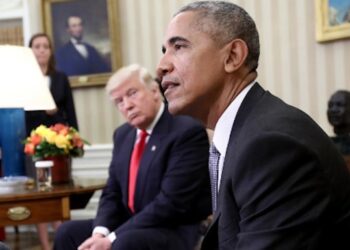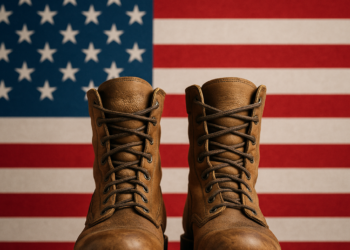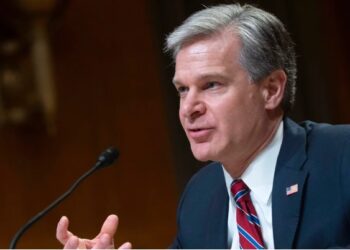Wednesday’s WarRoom open was a painful history lesson combined with a modern-day call to action- if you were listening closely to Steve Bannon, Dr. Bradley Thayer, and Cleo Paskal, you know exactly why. August 6th marks one of the most consequential days in human history—the day the United States dropped the first atomic bomb on Hiroshima. But this wasn’t about nostalgia or dusty textbooks; it’s about what it’s going to take to keep America safe in the age of President Donald J. Trump.
Bannon set the tone by reminding the audience: You—the populist nationalist movement—are the adults in the room. You’re the ones who have to make sure the "common-sense” American voice calls the shots, not the globalist war‑mongers or the Chinese Communist Party (CCP).
QUICK CLIP:
79 years ago today, the Enola Gay dropped the first atomic bomb on Hiroshima.
A weapon built in secret. A warning ignored.
And the world changed forever at 8:15 a.m. pic.twitter.com/QtwBa3Bn1M
— Bannon’s WarRoom (@Bannons_WarRoom) August 6, 2025
Cleo Paskal broke it down further. The tiny Pacific island of Tinian—once controlled by Japan, captured by U.S. Marines in 1944—became the launch pad for the Enola Gay. From there, the atomic mission to Japan was possible because the island sat within bomber range of Tokyo. It wasn’t just luck; it was hard‑fought, bloody strategy. And here’s the kicker—what Paskal sees happening now is frighteningly similar to the 1930s: an aggressive Asian power using economic infiltration, political influence, and infrastructure projects to position itself for a strike. Only this time, it’s the CCP building casinos and cozying up to local politicians in the Marianas.
QUICK CLIP:
CLEO PASKAL: China is building its beachhead in Micronesia the same way Japan did in the 1930s.
Fake businesses. Complicit politicians. Military ambitions under a civilian mask.
60 miles from Guam, the trap is being set again.@CleoPaskal pic.twitter.com/I6TA3TZayK
— Bannon’s WarRoom (@Bannons_WarRoom) August 6, 2025
Dr. Bradley Thayer drove home the stakes. The atomic bombings didn’t just end WWII—they saved hundreds of thousands of American lives and millions of Japanese lives that would’ve been lost in the planned invasion of Japan. They also kept the Soviets from carving up Japan into occupation zones. But the real lesson? America’s victory was only possible because we had an unmatched industrial base and the will to use it. In just four years, we developed both the Manhattan Project and the B‑29 bomber program.
Fast‑forward to today—our industrial capacity is weaker, our Navy and Air Force aren’t where they need to be, and the CCP is rehearsing for a Taiwan invasion while Biden‑era holdovers still push endless wars in Ukraine and Gaza. President Trump is working to end these wars, but the globalists and war profiteers are heating them up, not cooling them down.
Why this matters now:
The Pacific isn’t just a history book chapter—it’s the future battleground. Islands matter. Geography matters. Whoever controls the chokepoints controls the fight.
Economic "investments” from adversaries aren’t charity—they’re Trojan horses. The CCP isn’t playing poker in the Pacific; they’re laying the groundwork for war.
We can’t defend America without a strong industrial base. WWII proved it. We can’t rely on foreign supply chains when the shooting starts.
The Call to Action:
Educate yourself. Learn the real history of the Pacific War. Understand why Tinian mattered then—and why it matters now.
Support President Trump’s agenda to rebuild America’s military strength and industrial capacity.
Expose CCP infiltration—especially in U.S. territories and strategic Pacific islands. This isn’t a conspiracy theory; it’s history repeating itself.
Hold the line against endless wars that drain our resources and distract from the real threat—the CCP.
As Bannon said, the War Room Posse isn’t just watching history—you’re shaping it. If we ignore the lessons of August 6, 1945, we risk finding ourselves on the wrong end of the next "dawn of a new age.” And next time, we may not be the ones holding the upper hand.
The lesson from Tinian is clear: decisive action, strategic foresight, and the will to use our power win wars and keep the peace. The question is—will we have the backbone to do it again?




